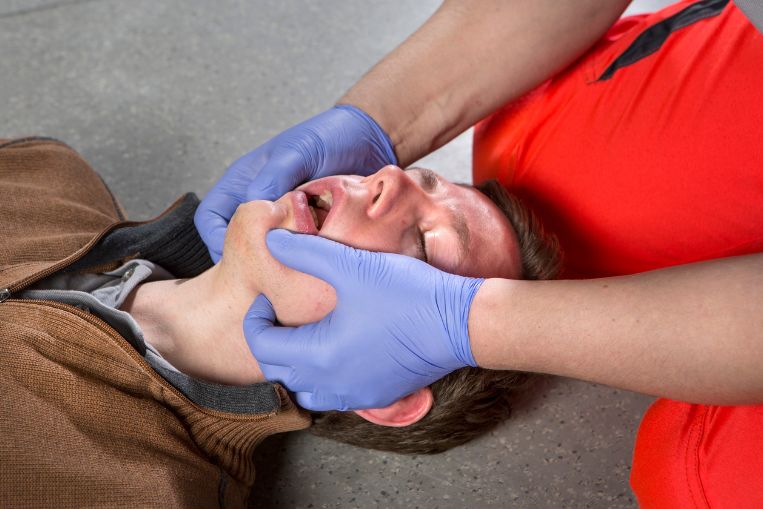Struggling with jaw pain or finding it hard to chew? At Physio9 Clinic, our jaw deviation treatment in Pune uses specialized physiotherapy techniques to realign your jaw and reduce discomfort. Whether it’s pain or difficulty with daily tasks, we’re here to help you get back to feeling your best.
Jaw deviation occurs when the jaw shifts to one side, leading to misalignment of the teeth and jaw joints. This condition can result from a variety of factors, such as trauma, temporomandibular joint (TMJ) disorders, congenital issues, or poor posture. Jaw deviation can cause pain in the jaw, face, or neck, difficulty opening and closing the mouth, headaches, and even clicking or popping sounds when moving the jaw.
Living with jaw deviation can be uncomfortable and can disrupt basic functions like eating and speaking. Over time, if left untreated, the condition may lead to more serious complications, including chronic pain, uneven tooth wear, and TMJ dysfunction.
At The Physio9 Clinic, our jaw deviation treatment focuses on correcting the misalignment and alleviating the associated symptoms. Our expert physiotherapists conduct a thorough assessment to identify the underlying cause and extent of the deviation. We then create a customized treatment plan that may include manual therapy to relieve muscle tension, TMJ exercises to restore proper jaw movement, and postural correction to improve alignment.
Our approach is holistic and patient-focused, ensuring that we address both the physical and functional aspects of jaw deviation. We also work on improving strength and flexibility in the surrounding muscles, helping to support the jaw and prevent future issues. Our goal is to provide relief from pain, restore proper jaw function, and improve your overall quality of life.
If jaw pain or misalignment is impacting your life, schedule a consultation with our expert at The Physio9 Clinic to learn more about jaw deviation treatment in Pune.
FAQ's
Jaw deviation is often caused by the imbalance or dysfunction of the lateral pterygoid muscle, a muscle involved in opening and moving the jaw. Other muscles, such as the masseter and temporalis, can also contribute if they become tight or weak.
Yes, a physiotherapist can help with jaw alignment by using manual therapy, exercises, and techniques to reduce muscle tension, improve range of motion, and address any muscle imbalances contributing to the misalignment.
Exercises to correct jaw deviation often focus on strengthening and stretching the jaw muscles. One common exercise involves gently opening and closing the jaw while keeping it aligned in the center, or practicing side-to-side movements to improve coordination and balance between the muscles on both sides of the jaw.
Yes, physical therapy can help improve jaw function, reduce pain, and address issues like temporomandibular joint (TMJ) dysfunction, misalignment, or jaw stiffness through targeted exercises, manual techniques, and patient education.
Massage therapy can be beneficial for TMJ (temporomandibular joint) disorders by helping to release tension in the jaw muscles, improving blood flow, and reducing pain and inflammation. A therapist may use specific techniques to work on muscles such as the masseter, temporalis, and pterygoids.
Yes, physiotherapy can help improve alignment in various parts of the body, including the jaw, spine, and limbs. For the jaw, physiotherapists can use exercises, manual therapy, and other techniques to correct misalignments caused by muscle imbalances or dysfunction.
In many cases, minor jaw alignment issues can be corrected without surgery. Treatments like physical therapy, orthodontic care, and the use of dental appliances (such as mouthguards) can improve alignment over time.
Yes, exercises targeting the jaw muscles can help correct minor alignment issues by strengthening weak muscles and stretching tight ones. However, more severe cases may require additional treatment.
To massage jaw muscles, use gentle pressure from your fingers to rub in small circular motions along the jawline, cheekbones, and sides of the face. Focus on areas where you feel tension, like the masseter muscle (near the cheeks) and the temporalis (near the temples).
Yes, physical therapy can help realign the jaw by addressing muscle imbalances, improving posture, and using specific exercises and manual therapy techniques. This treatment can often provide relief from TMJ pain and improve jaw function.







